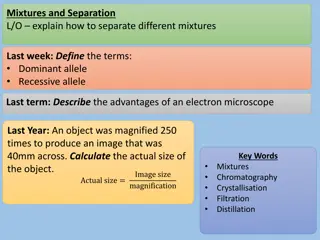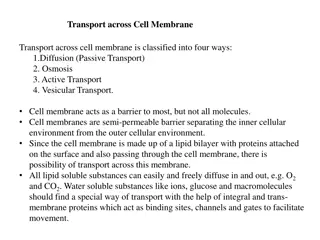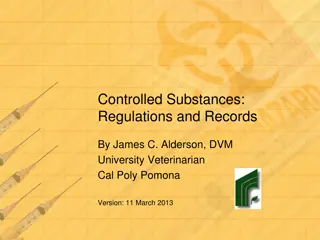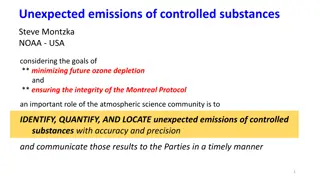Doctor Shopping for Controlled Substances
Doctor shopping involves patients obtaining controlled substances from multiple healthcare practitioners without their knowledge. National restrictions and applicable laws aim to prevent this practice, highlighting the types of doctor shoppers and ways PMPs can assist healthcare professionals.
Download Presentation

Please find below an Image/Link to download the presentation.
The content on the website is provided AS IS for your information and personal use only. It may not be sold, licensed, or shared on other websites without obtaining consent from the author.If you encounter any issues during the download, it is possible that the publisher has removed the file from their server.
You are allowed to download the files provided on this website for personal or commercial use, subject to the condition that they are used lawfully. All files are the property of their respective owners.
The content on the website is provided AS IS for your information and personal use only. It may not be sold, licensed, or shared on other websites without obtaining consent from the author.
E N D
Presentation Transcript
MANDATE CONTRACT SPECIFIC WORK CONTRACT CONSTRUCTION WORKS CONTRACT Dorota Wieczorkowska Faculty of Law, Administration and Economy University of Wroc aw
MANDATE CONTRACT Article 734. 1. By the contract of mandate the party accepting the mandate undertakes to perform a specific juridical act for the principal. 2. In the absence of a different agreement the mandate shall comprise empowerment to carry out the juridical act on behalf of the principal. This provision shall not prejudice the provisions on the form of power of attorney.
PARTIES OF THE CONTRACT Party accepting the mandate Principal
OBJECT OF THE CONTRACT Specific juridical act. What is that? Negotiating a contract on behalf of the principal; Concluding a contract on behalf of the principal; Representing the principal in front of the courts/public authorities;
TYPES OF MANDATE Direct representation Indirect representation Mandate with PoA The party accepting the mandate acts on behalf and for the account of the principal directly (as a proxy/attorney) Mandate without PoA The party accepting the mandate acts in his own name but for the account of the principal
MANDATE POA Art.. 734 2. In the absence of a different agreement the mandate shall comprise empowerment to carry out the juridical act on behalf of the principal. This provision shall not prejudice the provisions on the form of power of attorney.
REMUNERATION Article 735. 1. If neither from the contract nor from the circumstances it results that the party accepting the mandate has undertaken to perform it without remuneration, the remuneration shall be due for the performance of the mandate. 2. If there is no scale of charges in operation and no agreements have been made as to the amount of remuneration, remuneration corresponding to the work performed shall be due.
ADVANCE PAYMENT Article 743. If the performance of the mandate requires expenses, the principal should make to the party accepting the mandate an appropriate advance payment at the latter's request.
MANNER OF PERFORMING THE MANDATE Article 737. The party accepting the mandate may without the previous consent of the principal abandon the manner of performing the mandate indicated by the latter where there exists no possibility of obtaining his consent and there are justified reasons to suppose that the principal would have agreed to the change if he had known of the present state of affairs.
SUBSTITUTE Article 738. 1. The party accepting the mandate may entrust a third party with the performance of the mandate only where it results from the contract, or from custom, or where he is forced to it by the circumstances. In such a case he is obliged to notify the principal immediately of the person and the domicile of his substitute and in the case of notification he shall only be liable for lack of due diligence in selecting the substitute. 2. The substitute shall be liable for the performance of the mandate towards the principal as well. If the party accepting the mandate is held liable for acts of its substitute as for his own acts, their liability shall be joint and several.
INFORMATION DUTY Article 740. The party accepting the mandate should provide the principal with necessary information on the course of the affair, and after having performed the mandate or after earlier termination of the contract the former should submit a report to the latter. The party accepting the mandate should release to the principal everything that he obtained for him while performing the mandate, even if it was done in his own name.
EARLIER TERMINATION OF THE CONTRACT Article 746. 1. The principal may terminate the mandate by notice at all times. He should, however, reimburse the party accepting the mandate for such expenses which the latter made for the purpose of performing the mandate properly; in the case of a non-gratuitous mandate the former shall be obliged to pay to the party accepting the mandate a part of the remuneration corresponding to the acts already performed by him, and where the termination by notice has occurred without an important reason, he should redress the damage as well. 2. The party accepting the mandate may terminate it by notice at all times. However, where the mandate is a non-gratuitous one, and the termination by notice has occurred without an important reason, the party accepting the mandate shall be liable for the damage.
DEATH OF THE PRINCIPAL Article 747. In the absence of a different agreement, the mandate shall not expire as a result of the principal's death or as a result of him losing the capacity for juridical acts. However, where pursuant to the contract, the mandate has expired, the party accepting the mandate should continue to manage the affairs, where damage might have resulted from an interruption of the acts entrusted to him, until an heir or the principal's statutory representative is able to order otherwise.
DEATH OF THE PARTY ACCEPTING THE MANDATE Article 748. In the absence of a different agreement, the mandate shall expire as a result death of the party accepting the mandate or as a result of him losing the full capacity for juridical acts.
CONTRACTS FOR OTHER SERVICES Article 750. The provisions on mandate shall apply accordingly to contracts for services, which are not governed by other provisions.
SPECIFIC WORK CONTRACT Article 627. By a project contract [specific work contract] the party accepting the order undertakes to complete a specified project [work] and the party ordering the project [work] undertakes to pay him remuneration. The party accepting the order The party ordering the project
OBJECT OF THE CONTRACT SPECIFIC WORK Specific work/project: Performing some personalised projects/orders Furniture (made-to-measure) Clothing (garment), shoemaking Installation / system (e.g. air condition system, heating system etc) Project of a building Legal opinion on specified topic Computer program / software Specified Intellectual property items THE MOST IMPORTANT IS THE END EFECT!
REMUNERATION REMUNERATION BY COST ESTIMATION LUMP SUM REMUNERATION remuneration determined on the basis of the listed planned operations and the expected costs time and materials basis The total sum of remunration is determined in the agreement fixed price basis
LUMP SUM REMUNERATION Article 632. 1. If the parties have agreed on lump-sum remuneration, the party accepting the order may not demand the increase in the remuneration even if it was impossible, at the time of concluding the contract, to fully predict the volume or the cost of the operations to be performed. 2. However, if as a result of a change of the circumstances which might not have been predicted, the completion of the project would jeopardise the party accepting the commission with a glaring loss, a court of law may increase the lump sum or terminate the contract.
REMUNERATION BY COST ESTIMATION Article 630. 1. If in the process of performing of the specified project it proves necessary to carry out operations which were not envisaged on the list of the planned operations as the basis for the calculation of the remuneration based on cost estimation, and if the list was drawn up by the ordering party, the party accepting the order may demand an appropriate increase in the remuneration agreed on. If the list of the planned operations was drawn up by the party accepting the order he may demand an increase in the remuneration only provided that despite having exercised due diligence he could not have expected the necessity of additional operations. 2. The party accepting the order may not demand the increase in the remuneration if he has performed the additional operations without obtaining the ordering party's consent
MATERIALS Article 633. If the materials for the project are delivered by the party ordering the project, the party accepting the order should use them in an appropriate manner and provide an account of their use as well as return the part which has not been used up. Article 634. If the materials for the specific work delivered by the party ordering the project prove not suitable for completing the specific project appropriately or if there arise other circumstances which may prevent the appropriate completion, the party accepting the order should notify the party ordering the project of it immediately.
MANNER OF PERFORMING THE ORDER Article 636. 1. If the party accepting the order is performing the specific project in an inadequate manner or in a manner inconsistent with the contract, the party ordering the project may call upon him to change the manner of its performance and set for him an appropriate time limit for that purpose. If the set time limit elapses to no avail the party ordering the project may renounce the contract or he may entrust another person with the correction or the further performance of the specific project, at the cost and risk of the party accepting the order. 2. If the party ordering the project has supplied the material himself, in the case of renouncing the contract or entrusting another person with performing the specific project, he may demand to have the material returned and the commenced project released.
COOPERATION OF THE PARTY ORDERING THE PROJECT Article 639. The party ordering the project may not refuse the payment of the remuneration despite the specific project not having been completed if the party accepting the order was ready to complete it but he was prevented from completing it for reasons due to the party ordering the project. However, in such a case, the party ordering the project may deduct what the party accepting the order has saved for not having completed the specific project. Article 640. If the cooperation of the party ordering the project is required for the completion of the specific project and there is no such cooperation, the party accepting the order may set for the party ordering the project an appropriate time limit with a warning that where the time limit lapses to no avail, he will be entitled to renounce the contract.
DEATH OF THE PARTY ACCEPTING THE ORDER Article 645. 1. The project contract whose completion depends on personal attributes of the party accepting the order shall be terminated due to his death or inability to work. 2. If the party accepting the order owned the material and the specific project which has been completed in part given the intended purpose of the contract is of value to the party ordering the project, the party accepting the order or his heir may demand that the party ordering the project collect the material in such a state in which it is, in exchange for the payment of its value and of an appropriate part of the remuneration.
COLLECTING THE CONTRACTS OBJECT Article 643. The party ordering the project shall be obliged to collect the specific project which the party accepting the order releases to him according to his obligation.
RENOUNCING THE CONTRACT BY THE ORDERING PARTY Article 644. The party ordering the project may at any time, until the specific project is completed, renounce the contract while paying the remuneration agreed on. However, in such a case, the party ordering the project may deduct what the party accepting the order has saved due to its failure to complete the specific project.
CONSTRUCTION WORKS CONTRACT
CONSTRUCTION WORKS CONTRACT Article 647. By a construction works contract the contractor undertakes to complete the object, envisaged in the contract and made according to a project and the principles of technical knowledge and the investor undertakes to perform the activities required by relevant provisions which are connected with the preparation of works, in particular to hand over the construction site and to provide the project as well as to accept the object and to pay the remuneration agreed on.
SUBCONTRACTORS Article 6471. 1. The investor is jointly and severally liable with a contractor (general contractor) for the payment of remuneration due to subcontractor for the construction works performed by the latter, that have been previously notified to the investor in details either by the contractor or the subcontractor prior to commencing the works, unless within 30 days from the receiving a suitable notification the investor has objected towards the subcontractor or the contractor in regard to performing such works by the subcontractor.
CONTRACTORS RIGHT TO GUARANTEE OF PAYMENT Article 6491. 1. The investor shall grant to the contractor (general contractor) a guarantee of payment for the construction works, hereinafter referred to as 'the guarantee of payment' for the purpose of securing a timely payment of the agreed remuneration for carrying out construction works. 2. A bank guarantee or an insurance guarantee as well a bank's letter of credit or a bank s suretyship granted at the investor's order shall be the guarantee of payment. 3. The parties shall incur in equal parts the documented costs of securing a receivable
ACCEPTING THE WORKS IN PART Article 654. In the absence of a different contractual provision the investor shall at the contractor's request be obliged to accept the works which have been performed in part, as they are being completed, while paying the appropriate part of the remuneration.

























